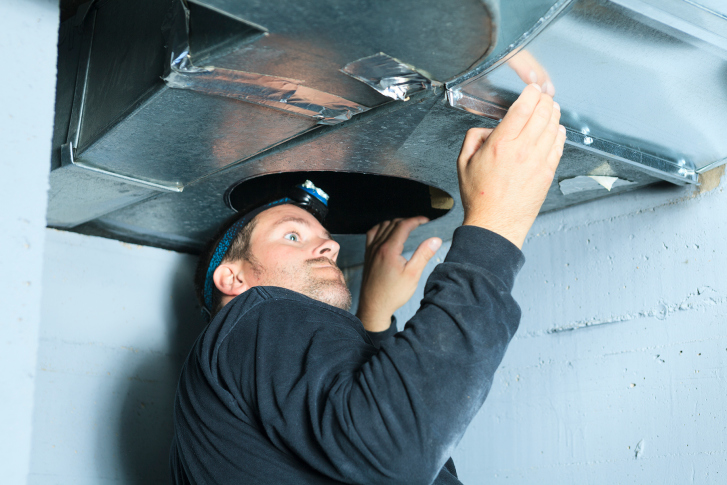 When you’re looking into purchasing a home, there are plenty of things to watch out for at any time of the year, but there are a few things that you can expect during the winter months that may be a little different than other seasons. If you happen to be on the market for a home and are thinking of buying, here are three things you may want to consider for the winter buying months.
When you’re looking into purchasing a home, there are plenty of things to watch out for at any time of the year, but there are a few things that you can expect during the winter months that may be a little different than other seasons. If you happen to be on the market for a home and are thinking of buying, here are three things you may want to consider for the winter buying months.
A Little Bit Off The Top
While there is significant home buying that goes on throughout the fall, it’s often the case that things slow down in winter with the often unruly weather and the busyness of the season. As a result, if you’re planning on making an offer during these months, you may be able to swing the home seller a couple thousand dollars in your direction to garner a bit of a discount. Though there are no assurances, it’s quite likely that the home seller will want to get their house off the market before springtime comes around.
A Speedier Approval Process
With the amount of properties being bought and sold in the winter months slightly lower than the rest of the year, you may be able to take advantage of a speedier approval process for your mortgage. Since there will be fewer client approvals to sort out, you may be in the clear shortly after you’ve decided on the home of your choice. This means more ease in the winter months for you, and a home you’ll soon be able to call your own.
An Effective Heating System
There may be certain upgrades you’ll want to make shortly after arriving in your new home, but if you decide to buy in the winter months, overhauling the heating system is not going to be one of the things you’ll want to worry about. If the furnace in good working order and is maintained on a consistent basis, you should be good to go; however, if any upgrades will need to be made you’ll want to clarify this with the seller before signing on the dotted line.
There are many factors in winter that can lend to a slow season for the real estate market, but there are a few things you can expect that may make buying a home in the winter months a worthwhile venture. If you’re looking for more information on purchasing a home in the near future, you may want to contact your local real estate professional for more information.
 With all of the expense that can go into buying and selling a home, it’s good to be aware of what you can claim and how a home can benefit you come tax time. When the New Year rolls around and you’re sitting down to the task of completing your taxes, here are a few things that you’ll want to keep in mind.
With all of the expense that can go into buying and selling a home, it’s good to be aware of what you can claim and how a home can benefit you come tax time. When the New Year rolls around and you’re sitting down to the task of completing your taxes, here are a few things that you’ll want to keep in mind. While making a real estate purchase can be a matter rife with many questions, buying to invest in a long-term property can be even more confusing. If you’re looking into investing in real estate and wondering what variables to consider, here are a few tips that you’ll want to keep in mind before deciding on a fruitful investment property.
While making a real estate purchase can be a matter rife with many questions, buying to invest in a long-term property can be even more confusing. If you’re looking into investing in real estate and wondering what variables to consider, here are a few tips that you’ll want to keep in mind before deciding on a fruitful investment property. Relocating to a new city? Thinking about moving to a new neighborhood? While word of mouth from friends and family is valuable, sometimes it’s necessary to get a different perspective.
Relocating to a new city? Thinking about moving to a new neighborhood? While word of mouth from friends and family is valuable, sometimes it’s necessary to get a different perspective. The shift from home living to condo life may seem like a minor one, but there are plenty of things that will differentiate your lifestyle other than size when it comes to making a condominium purchase. If you’re contemplating this move and wondering about some of the things that this might entail, here are a few factors that are worth considering.
The shift from home living to condo life may seem like a minor one, but there are plenty of things that will differentiate your lifestyle other than size when it comes to making a condominium purchase. If you’re contemplating this move and wondering about some of the things that this might entail, here are a few factors that are worth considering.
 When it comes to home ownership, the biggest buzzword of them all is mortgage and it’s often all people think about when it comes to price. While the ‘m’ word will be a large part of the expense that goes into owning a house, it’s important to be aware of all of the other costs that are aligned with having a home. From taxes to utilities, here are some of the other items that you won’t be able to do without once you’ve made the big purchase.
When it comes to home ownership, the biggest buzzword of them all is mortgage and it’s often all people think about when it comes to price. While the ‘m’ word will be a large part of the expense that goes into owning a house, it’s important to be aware of all of the other costs that are aligned with having a home. From taxes to utilities, here are some of the other items that you won’t be able to do without once you’ve made the big purchase. Switching houses? Then now is the perfect time to finally go through all the clutter and make some tough decisions about what needs to move and what needs to go away.
Switching houses? Then now is the perfect time to finally go through all the clutter and make some tough decisions about what needs to move and what needs to go away. When it comes to selling a home, it is a common belief that once the offer is accepted, there is nothing else to be negotiated. However, issues and obstacles that can arise during the home inspection can be a cause for discussion with the seller. Whether you’re currently searching for houses or your offer has already been accepted and you’re preparing for the next step, here are some tips in the event that the home inspection isn’t up to par.
When it comes to selling a home, it is a common belief that once the offer is accepted, there is nothing else to be negotiated. However, issues and obstacles that can arise during the home inspection can be a cause for discussion with the seller. Whether you’re currently searching for houses or your offer has already been accepted and you’re preparing for the next step, here are some tips in the event that the home inspection isn’t up to par. With all of the care and consideration that can go into deciding if a home is the right fit, it can add a wrench to the mix to realize that you may not have a lot of time to put in an offer. It’s certainly important to weigh all of the factors of buying a home before deciding to put yourself in the ring, but here is why you’ll want to come to a conclusion quickly when it comes to a home you love.
With all of the care and consideration that can go into deciding if a home is the right fit, it can add a wrench to the mix to realize that you may not have a lot of time to put in an offer. It’s certainly important to weigh all of the factors of buying a home before deciding to put yourself in the ring, but here is why you’ll want to come to a conclusion quickly when it comes to a home you love.